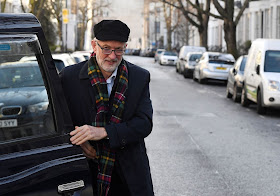 |
| Boris showing the way forward. And the subtle approach he took |
Well, ‘done’ is perhaps a bit of an overstatement. It’s one thing for the husband to leave the house, suitcase in hand. It’s quite another to finalise the divorce arrangements, divide the property and start paying the alimony.
What makes it worse is that the lovely young thing from accounting for whom the husband precipitated the split may not turn out to be quite so accommodating as at first he convinced himself. She may, indeed, to be at least as demanding as the wife he left. Not perhaps a problem if you’re Rupert Murdoch, with the resources to meet pretty much any demand from a string of wives. Not so hot if you’re a middle-ranking executive whose income will have trouble stretching to cover both alimony and the mortgage on a luxury new apartment.
That’s when the new-found freedom starts to look a little expensively purchased.
Britain’s in that position. It’s walked out, head held high, nose in the air, daring the deserted spouse to do its worst. But far from being done, the really difficult part of Brexit starts now. The lawyers, in this case negotiators, are getting in on the act, and sharpening the knives.
Brexiters have always claimed that Britain would, somehow, be in the driving seat. It would dictate terms to the remaining 27 EU members, who would fall over themselves in their eagerness to sign a trade deal, on terms favourable to Britain, at the earliest opportunity.
Equally, the rest of the world would be beating a path to Britain’s door to do the same. In the lead would be the US, with Trump enthusiastic, anxious even, to provide his friend Boris with an agreement which might go so far as to sacrifice some US interests, such is his determination to see Boris right.
Meanwhile, the Faragists of the Left, or Lexiters as they call themselves (left-wing Brexiters), claim that leaving the EU is going to free up the country to look after its workers and its poor the way they’d like. Once away from the devious, conspiratorial capitalist club that is the EU, Britain will be free to usher its people into a sunlit, socialist upland.
Maybe all that will happen. If so, I will hold up my hand and admit I got things wrong. My fear is that Brexiters have been deluding themselves that the country is in the position of Rupert Murdoch when, in reality, it’s like the middle-ranking executive. And the US isn’t the demure assistant from accounting, anxious to do her new man’s bidding, she’s the former actress and model used to having all the best in life brought to her and thrown at her feet by admirers who are all but worshippers.
The EU 27 have already warned Britain that they see themselves calling the shots. A hugely favourable deal is on offer, but only on certain conditions: the UK must accept that it will be on a level playing field with the rest of Europe. That means maintaining the same standards concerning quality, state aid and workers’ rights. In other words, it means behaving as an EU member, with no say over the regulations it has to follow.
As for the US, it too is going to have its demands. Great deal, on condition that Britain accepts US food standards, drug prices and commerce regulations generally. Brexiters promised that Britain would be taking back control. It seems to me that, in reality, it will be a rule taker.
As for the socialist uplands, the results of the December general election show that this is at best a remote dream. The Conservatives are firmly in power now, and with a majority that may well see them through the next election too. Paradoxically, the Faragists of the Left blame Brexit for this, though it leaves them as keen as ever on Brexit itself.
I could, as I said, be wrong about all of this. That would be a huge relief. But I think that’s the task on Brexiters now: their job is to prove that they can deliver on their promises. And Lexiters have to show how they plan to guarantee better rights and living standards for the underprivileged they claim to represent.
The night of 31 January will be a time of celebration for them. They have the weekend to recover. Then the real work starts.
Let’s hope the hangover won’t be too awful. Because, sadly, it won’t just be Brexiters who suffer it. Sadly, I fear the rest of us will be paying the price of their self-indulgence too.


























